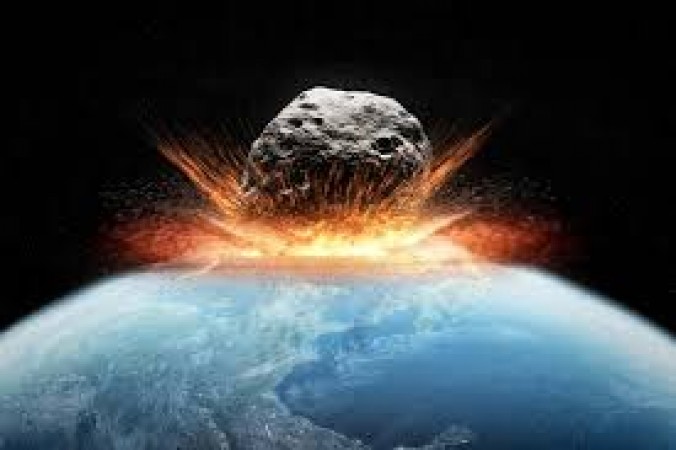
When an asteroid collides with Earth, it unleashes a series of catastrophic events that can have devastating consequences for life on our planet. The initial impact results in a massive explosion, generating shock waves that radiate outwards, causing widespread destruction in the vicinity of the impact site. The force of the impact can be equivalent to multiple nuclear explosions, depending on the size and velocity of the asteroid.
Formation of Crater
One of the most visible effects of an asteroid collision is the formation of a crater. Upon impact, the asteroid excavates a large crater in the Earth's surface, ejecting debris and causing widespread damage to the surrounding area. The size of the crater varies depending on the size and speed of the asteroid, as well as the composition of the Earth's crust at the impact site.
Global Firestorms and Atmospheric Disruption
In addition to the immediate impact zone, an asteroid collision can trigger global firestorms due to the intense heat generated by the impact. The intense heat ignites wildfires across vast areas, releasing massive amounts of smoke and soot into the atmosphere. This smoke can block out sunlight, leading to a phenomenon known as "impact winter," where temperatures plummet and plant life struggles to survive.
Tsunamis and Coastal Flooding
If an asteroid collides with the ocean, it can trigger massive tsunamis that travel across vast distances, inundating coastal regions and causing widespread flooding. These tsunamis can reach heights of hundreds of feet, devastating coastal communities and infrastructure. The impact of the tsunami waves can also lead to secondary effects such as erosion and saltwater intrusion into freshwater sources.
Climate Change and Extinction Events
The long-term consequences of an asteroid collision can be even more profound. The release of dust and debris into the atmosphere can block out sunlight for months or even years, leading to a significant drop in global temperatures. This phenomenon, known as a "nuclear winter," can disrupt ecosystems and lead to widespread extinctions of plant and animal species.
Humanitarian Crisis and Societal Collapse
In the aftermath of an asteroid impact, humanity would face a humanitarian crisis of unprecedented scale. Infrastructure would be destroyed, food and water supplies would be contaminated or scarce, and access to medical care would be severely limited. Societal collapse could occur as governments struggle to maintain order and provide assistance to affected populations.
Mitigation and Preparedness Efforts
While the threat of asteroid impacts is rare, it is not negligible. Scientists around the world are actively monitoring near-Earth objects and developing strategies to mitigate the risk of a catastrophic impact. These efforts include early detection systems, spacecraft missions to study and deflect potentially hazardous asteroids, and international collaboration to coordinate response efforts in the event of an impending impact. In conclusion, the consequences of an asteroid collision with Earth would be catastrophic, with widespread destruction, loss of life, and long-term environmental and societal impacts. While the probability of such an event occurring in the near future is low, it is essential to remain vigilant and continue efforts to monitor and mitigate the threat posed by near-Earth objects.
Mangoes are good... but if you eat more than this then there is a problem
Cool Secret to a Healthier Summer: Daily Lassi or Chaas
These Step-by-Step Meditation Techniques for Instant Anxiety Relief